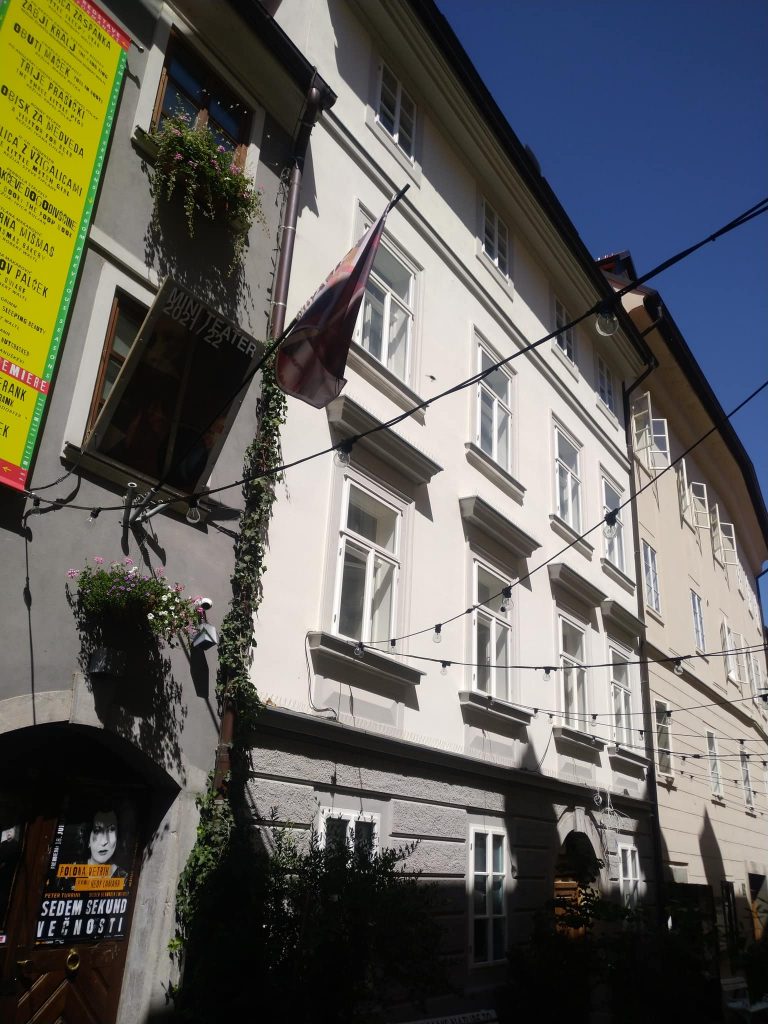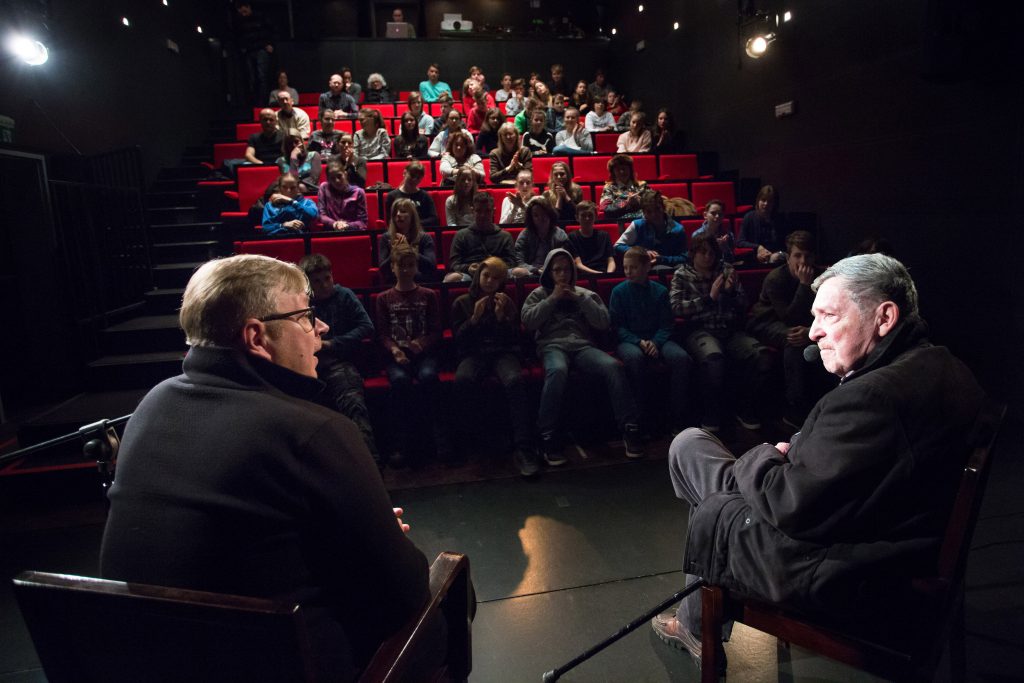Numerous events are being organised this year to celebrate Slovenian Jewish culture. These include European Days of Jewish Culture, the first edition of the Jewish Culture Festival in Ljubljana and the 12th Festival of the House of Tolerance. We meet Robert Baruh Waltl, director of the Jewish Cultural Centre of Ljubljana.

Jguideeurope: Which events will mark the European Days of Jewish Culture this year?
Robert Baruh Waltl: This year, Slovenia will mark the European Days of Jewish Culture with two major events. Already on August 23, a special celebration will be held in the small village of Domanjševci in Prekmurje – once home to the largest Jewish community in Slovenia before WWII. The program features exceptional concerts by musicians from Budapest and Vienna, and a performance of our puppet-storytelling show “Tales from Odessa”, based on the works of Isaac Babel. The production was directed by Czech director Robert Smolik, with set and puppet design by Radka Mizerová, and I perform the piece myself. The events are organized by two amazing people Katja Fras Čibej and Boris Čibej.
From September 5 to 7, we will host the first-ever Jewish Culture Festival in Ljubljana as part of the European Days of Jewish Culture. The festival will take place on Križevniška Street and in the Jewish Cultural Center Ljubljana, and offers a rich and diverse program:
– a concert of Ladino songs by Nanni Vazzana,
– klezmer music by Kontra Quartet,
– a puppet show for children by J. Sfarr,
– testimonies from families of Holocaust survivors (actors),
– a guided walk along the Stolpersteine (stumbling stones),
– various workshops, lectures, and discussions,
– and a vibrant culinary and cultural program.
The festival is supported by Turizem Ljubljana, the City of Ljubljana’s Department of Culture, AEJC.
Are other events related to Jewish culture and heritage planned in Ljubljana for 2025–2026?
Yes. In addition to the festival, we are preparing several important programs for 2025–2026. One of the highlights will be the 12th House of Tolerance Festival, which we founded twelve years ago together with the late Branko Lustig, Holocaust survivor and two-time Academy Award winner. The festival has grown into one of the most significant platforms in the region for addressing human rights, antisemitism, racism, and hate speech through film, theatre, and dialogue.
We also organize annual commemorations for International Holocaust Remembrance Day (January 27) and for Slovenia’s Holocaust Remembrance Day on April 26, which marks the deportation and near-total destruction of the Jewish community in Prekmurje and Slovenia during WWII.
In the 2025/2026 season, we will also be intensively performing our acclaimed productions both in Slovenia and on international tours. These include The Diary of Anne Frank, The Jewish Dog, and our latest success, Hannah Arendt: The (In)Human Condition, directed by Yonatan Esterkin.
In 2026, we are preparing a new puppet performance that will explore the arrival of Jewish merchants and financiers to Ljubljana in 1325, and the beginning of organized lending and banking in the city. This work will mark the 700th anniversary of Jewish presence and economic contribution in medieval Slovenia, and will be part of a broader educational and cultural initiative.
In the 2025/2026 season, we are also preparing two new puppet theatre productions:
– Bambi, based on the classic novel by Felix Salten, and
– Why Noah Needed a Dove, a poetic and thought-provoking piece by the young Russian-American artist Yulya Dukhovny.
If we receive sufficient support from our potential donors (RF), we also hope to open the first permanent exhibition on Jewish presence in the territory of Slovenia – from Roman times to the present day – in 2026, with their generous help.

Do you believe such events help combat the rise of antisemitism in Europe?
Without a doubt. Events that celebrate Jewish life, history, and culture – especially when they include young people, art, education, and personal testimony – are essential in the fight against antisemitism. They humanize Jewish experiences and challenge ignorance and prejudice at their root.
That said, we are increasingly concerned about the rise in hostility and tensions across Europe, and we worry whether we will be able to safely hold all outdoor events. We are already preparing backup plans to move some programs indoors if needed, in order to protect our guests and participants. This situation shows how fragile public space can become for minority communities, and how important it is that we continue to raise awareness.
Is there a place in Ljubljana connected to Jewish heritage that deserves more recognition?
Yes – the Novi trg (New Square) in the heart of Ljubljana’s old town, where the Jewish community lived in the Middle Ages, deserves much more attention. Nearby stands the Jewish Cultural Center Ljubljana, located on Križevniška Street, where we have been actively preserving and reviving Jewish heritage for over a decade through theatre, exhibitions, education, and memorial events. You have to visit our beautiful small synagogue- the only one active in Slovenia today.
The city is also marked by Stolpersteine (stumbling stones) – brass plaques embedded in the pavement to honor Jewish victims of the Holocaust. These quiet memorials tell a powerful story and deserve to be better known and integrated into the city’s public memory and educational programs.